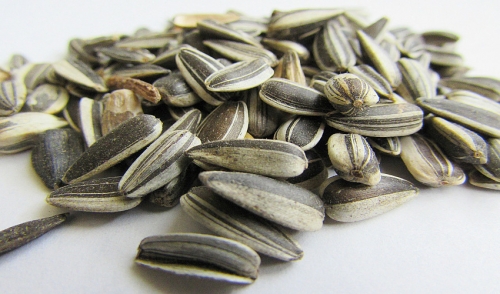
Tips for Storing Birdseed
It can be appealing to stock up on birdseed during seasonal sales or clearance events, but will backyard birds eat seed that is several months old? Properly stored, birdseed can last up to a year without problems, making it easy for backyard birders to take advantage of great deals without shortchanging birds.
First, be sure the seed you purchase is suitable for storage. The seed should be dry and free of mold, insects or other signs of spoilage, and the bag should be free of condensation that could signal mold or mildew. Discounted seed may already have been on store shelves for several weeks or months, and if it is in poor condition it may not be able to be stored much longer.
Use durable containers for storing birdseed. Ideally, galvanized metal or heavy-gauge plastic containers are best. Rounded corners help deter chewing rodents, and airtight lids keep moisture out and minimize the risk of spoiling. Containers should be large enough to hold a full bag of seed so none is left loose in an opened bag before it can be used, but small enough to be easily moved if needed. Many birders use large containers to store most of their seed, but keep a handy supply in smaller containers for immediate feeder refills.
Seed should be stored in a cool, dry place out of reach of marauders such as squirrels, rodents or raccoons. If possible, store seed in a locking shed or garage, but in a convenient location where it is easy to refill feeders. Check seed containers regularly for signs of leaks, damage, or infestations, and sift through seed carefully to detect any strong odors, insects, or clumps that can indicate problems. When refilling feeders, use the oldest seed first so the seed is constantly rotated and kept as fresh as possible.
With multiple feeders and dozens of birds visiting a backyard buffet, feeding birds can get expensive. Stocking up on seed is a great way to save, and storing that seed properly will ensure those savings don't go to waste with unusable seed.
